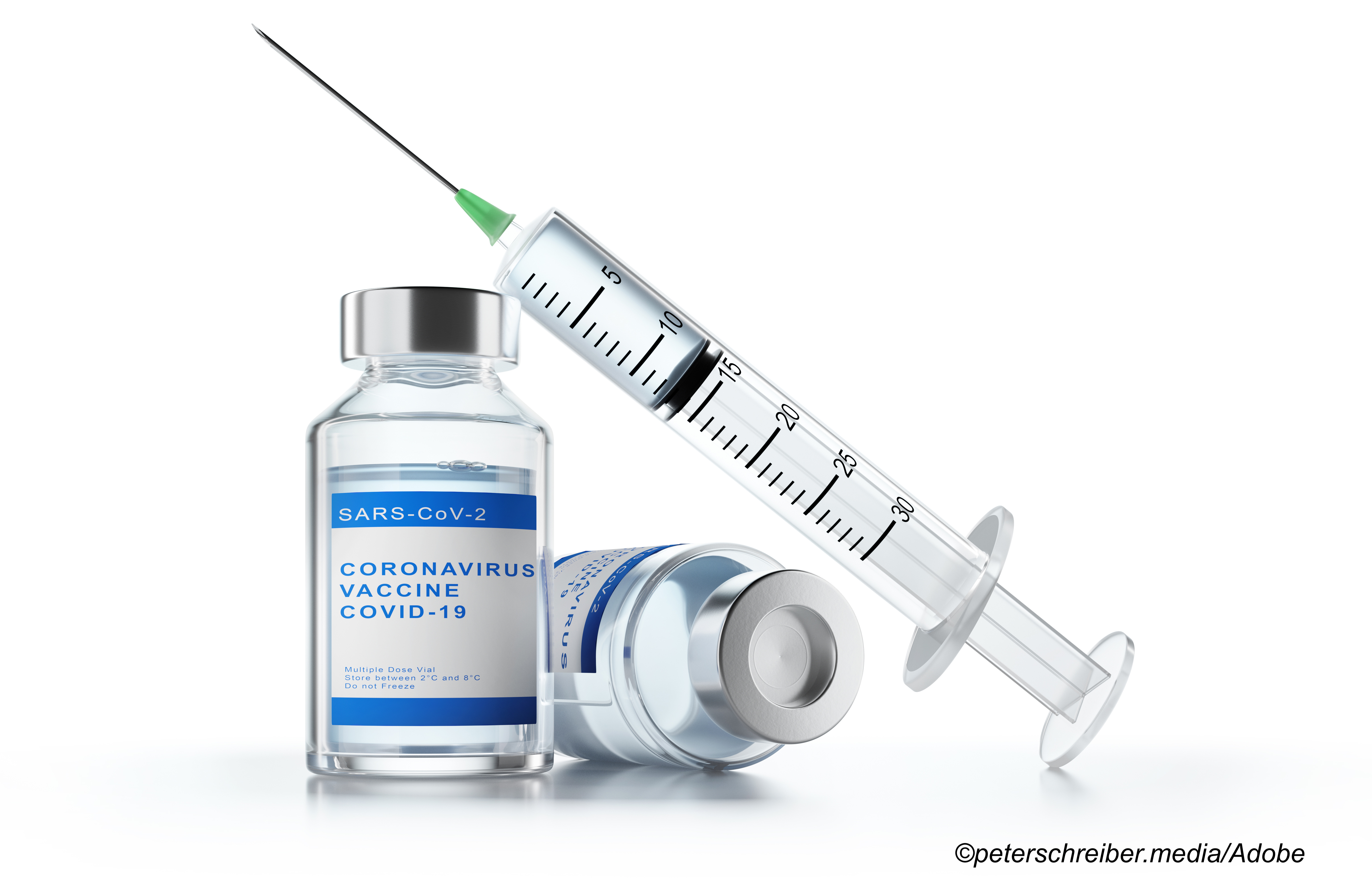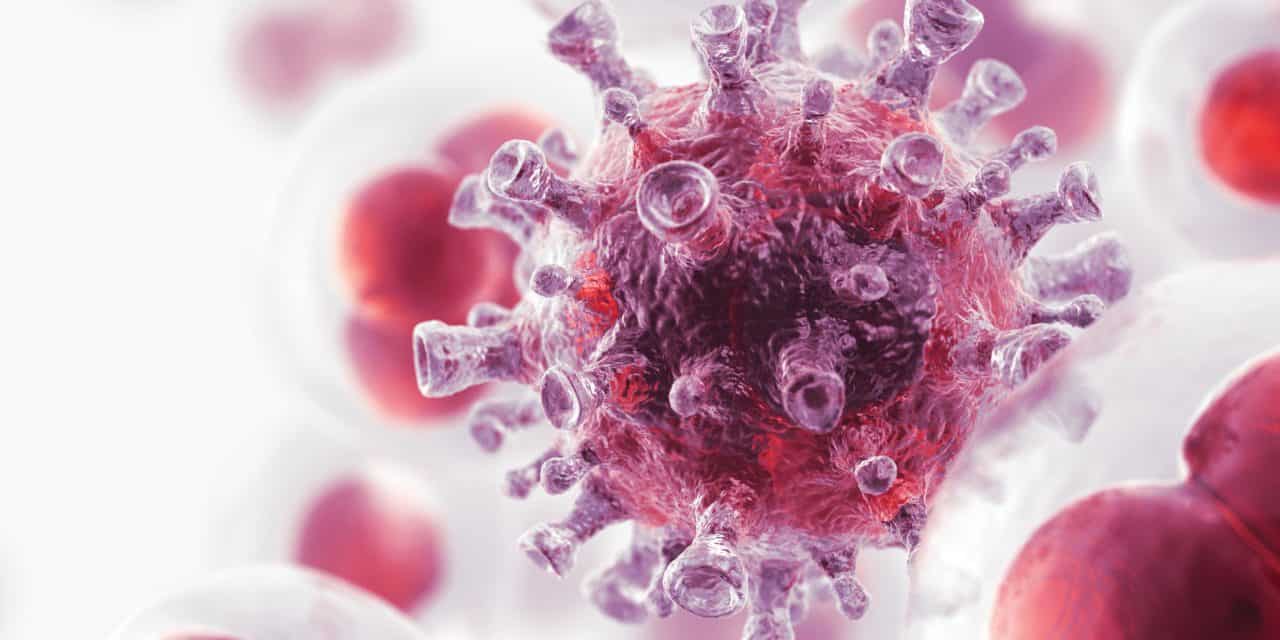
Patients with chronic inflammatory diseases (CID) receiving certain immunosuppression treatments showed reduced antibody response to Covid-19 mRNA vaccination in the longitudinal COVaRiPAD study.
Most (88.7%) study participants with rheumatoid arthritis, multiple sclerosis, or other chronic inflammatory diseases did exhibit antibody responses after two doses of the BNT162b2 or mRNA-1273 vaccines, but their antibody levels were often lower than those observed among immunocompetent study participants.
Post-vaccination seroconversion was lower in CID patients being treated with glucocorticoids or B-cell depleting therapy (BCDT), with just 60% of BCDT-treated patients and 65% of glucocorticoid-treating patients seroconverting.
The prospective COVaRiPAD study findings were published online August 30 in Annals of Internal Medicine.
“Our results build on data sets confirming that most patients with CID can mount humoral responses after SARS-CoV-2 vaccination, with a small proportion generating poor or no responses,” wrote researcher Alfred Kim, MD, PhD, of Washington University School of Medicine, St. Louis, Missouri, and colleagues.
Immunosuppression therapies widely used to treat chronic inflammatory diseases include glucocorticoids, anti-metabolites, tumor necrosis factor inhibitors (TNFi), BCDT, and Janus kinase inhibitors (JAKi).
Kim and colleagues noted that certain immunosuppressive treatments, such as BCDT, glucocorticoids, and the anti-metabolite sulfasalazine, have been linked to increased Covid-19 hospitalization and death.
“Consequently, vaccination is recommended for patients with CID. Nevertheless, prior studies have shown that certain immunosuppressive medications can blunt influenza and pneumococcal vaccine responses, which can sow doubt in providers and patients about the effectiveness of SARS-CoV-2 vaccination in this population,” they wrote.
The American College of Rheumatology and other health organizations have provided guidance on vaccinating patients with CIDs against Covid-19, but Kim and colleagues wrote that “initial recommendations are challenging to implement because of the absence of data specifically on vaccination in patients with CID.”
Their study included 133 patients with a CID along with 53 immunocompetent controls, with just 10 CID patients receiving BCDT at the time of recruitment and 17 receiving glucocorticoids.
Given these small numbers and the inability to adjust for other differences between the immunocompetent controls and patients with CIDs, the researchers noted that the findings “should be interpreted with caution and as hypothesis generating.”
Adults with confirmed CID eligible for early Covid-19 vaccination, including hospital employees of any age from 3 large, academic health systems and patients older than 65 years were eligible for the study. Immunocompetent participants were recruited separately from hospital employees.
All participants received 2 doses of either the BNT162b2 or mRNA-1273 vaccine between December 10, 2020, and March 20, 2021.
The study participants were assessed within 2 weeks before vaccination and 20 days after final vaccination for anti–SARS-CoV-2 spike (S) IgG+ binding. A subset of study participants was assessed for neutralizing antibody titers and circulating S-specific plasmablasts to assess humoral response after vaccination.
Among the main findings:
- Most of the 133 participants with CID (88.7%) and all 53 immunocompetent participants developed antibodies in response to mRNA-based SARS-CoV-2 vaccination, although some with CID developed numerically lower titers of anti-S IgG.
- Anti-S IgG antibody titers after vaccination were lower in participants with CID receiving glucocorticoids (n=17) than in those not receiving them.
- Anti-S IgG antibody titers were also lower in those receiving B-cell depletion therapy (BCDT) (n=10).
- The geometric mean of anti-S Ig antibodies was 357 (95% CI, 96-1324) for participants receiving prednisone versus 2190 (CI, 1598-3002) for those not receiving it.
The researchers noted that measures of immunogenicity differed numerically between those who were and those who were not receiving antimetabolites (n=48), tumor necrosis factor inhibitors (n=39), and Janus kinase inhibitors (n=11); however, 95% CIs were wide and overlapped.
A significant study limitation was the inability to adjust for confounding from concomitant use of multiple immunosuppressive therapies due to small sample sizes for many subgroups.
“Use of specific medications is also highly associated with CID diagnosis; thus, it is difficult to disentangle whether the underlying disease or individual immunosuppressant therapies contribute to diminished vaccine immunogenicity. Notably, prior studies suggest that the presence of CID alone (in the absence of immunosuppressive medications) may be associated with lower antibody titers than in immunocompetent controls,” Kim and colleagues wrote.
The lack of racial/ethnic diversity and the inability to evaluate differences between the two mRNA vaccines were also identified as study limitations.
Despite these limitations, the researchers concluded that the study findings “contribute important data to this nascent field.”
“We observed that patients with CID receiving glucocorticosteroids and BCDT developed numerically low or absent anti-S-IgG and neutralizing antibody titers in contrast to other participants with CID,” they wrote.
“Further studies are needed to determine the importance of contributions of specific medications, exposure to multiple immunosuppressive medications, CID diagnosis, disease state, and additional comorbidities to better understand the critical factors in SARS-CoV-2 vaccine responses.”
-
Most (88.7%) study participants with rheumatoid arthritis, multiple sclerosis, or other chronic inflammatory diseases (CID) did exhibit antibody responses after two doses of the mRNA Covid-19 vaccines.
-
Post-vaccination seroconversion was lower in CID patients being treated with glucocorticoids or B-cell depleting therapy (BCDT), with just 60% of BCDT-treated patients and 65% of glucocorticoid-treating patients seroconverting.
Salynn Boyles, Contributing Writer, BreakingMED™
Funding for this research was provided by the Leona M. and Harry Helmsley Charitable Trust, Marcus Program in Precision Medicine Innovation, NationalCenter for Advancing Translational Sciences and the National Institute of Arthritis and Musculoskeletal and Skin Diseases.
Corresponding author Alfred Kim reported personal fees from Exagen Diagnostics, Inc., grants and personal fees from GlaxoSmithKline, grants from National Institutes of Health, grants from Rheumatology Research Foundation, non-financial support from Annexon Pharmaceuticals, personal fees from Alexion Pharmaceuticals, personal fees from Aurinia Pharmaceuticals, outside the submitted work.
Cat ID: 125
Topic ID: 79,125,933,125,31,926,192,561,927,928,158,925,934


